Filter by

Empire, colonialism, and the human sciences: troubling encounters in the Amer…
For readers interested in the history of science, Indigenous studies, Latin American studies, and studies of empire and colonialism, this volume offers a revisionist history of research encounters in the human sciences in imperial and colonial contexts in the Americas and the Pacific. This title is also available as Open Access on Cambridge Core
- Edition
- -
- ISBN/ISSN
- 9781009398152
- Collation
- 388 p
- Series Title
- -
- Call Number
- 325.8 WAR e

Iberian world empires and the globalization of Europe 1415–1668
This open access book analyses Iberian expansion by using knowledge accumulated in recent years to test some of the most important theories regarding Europe’s economic development. Adopting a comparative perspective, it considers the impact of early globalization on Iberian and Western European institutions, social development and political economies. In spite of globalization’s minor impor…
- Edition
- 1
- ISBN/ISSN
- 9789811308338
- Collation
- xxvi, 520p; ill
- Series Title
- Palgrave Studies in Comparative Global History
- Call Number
- BAR i

Microhistories of technology : making the world
In this open access book, Mikael Hård tells a story of how people around the world challenged the production techniques and products brought by globalization. Retaining their autonomy and freedom, creative individuals selectively adopted or rejected modern gadgets, tools, and machines. In standard historical narratives, globalization is portrayed as an unstoppable force that flattens all obsta…
- Edition
- -
- ISBN/ISSN
- 9783031228131
- Collation
- xx, 290p
- Series Title
- Palgrave Studies in the History of Science and Technology
- Call Number
- 907.2 MIK m

Reframing Blackness and Black Solidarities through Anti-colonial and Decoloni…
This book grounds particular struggles at the curious interface of skin, body, psyche, hegemonies and politics. Specifically, it adds to current [re]theorizations of Blackness, anti-Blackness and Black solidarities, through anti-colonial and decolonial prisms. The discussion challenges the reductionism of contemporary polity of Blackness in regards to capitalism/globalization, particularly wh…
- Edition
- -
- ISBN/ISSN
- 9783319530796
- Collation
- xvi, 223p.
- Series Title
- -
- Call Number
- 305.8001 DEI r
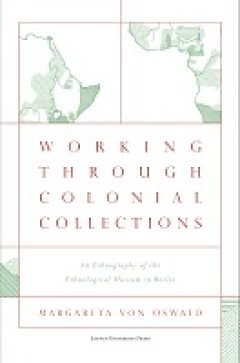
WORKING THROUGH COLONIAL COLLECTIONS : an ethnography of the ethnological mus…
Reckoning with colonial legacies in Western museum collections What are the possibilities and limits of engaging with colonialism in ethnological museums? This book addresses this question from within the Africa department of the Ethnological Museum in Berlin. It captures the Museum at a moment of substantial transformation, as it prepared the move of its exhibition to the Humboldt Forum, a new…
- Edition
- 1
- ISBN/ISSN
- 9789462703100
- Collation
- 321p.; ill.
- Series Title
- -
- Call Number
- 301 WOR v
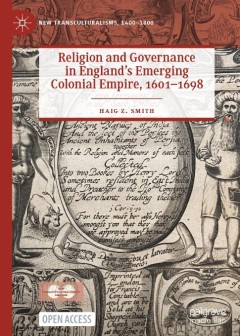
Religion and Governance in England’s Emerging Colonial Empire, 1601–1698
This open access book explores the role of religion in England's overseas companies and the formation of English governmental identity abroad in the seventeenth century. Drawing on research into the Virginia, East India, Massachusetts Bay, Plymouth, New England and Levant Companies, it offers a comparative global assessment of the inextricable links between the formation of English overseas gov…
- Edition
- -
- ISBN/ISSN
- 9783030701314
- Collation
- xi, 292 p.
- Series Title
- -
- Call Number
- 909.097124106 REL H
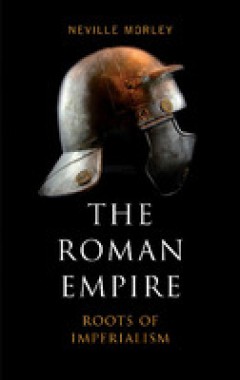
The Roman Empire; Roots Of Imperialism
A millennium and a half after the end of the period of its unquestioned dominance, Rome remains a significant presence in western culture. This book explores what the empire meant to its subjects. The idea of Rome has long outlived the physical empire that gave it form, and now holds sway over vastly more people and a far greater geographical area than the Romans ever ruled. It continues to sha…
- Edition
- -
- ISBN/ISSN
- 9781849645478
- Collation
- Knowledge Unlatched (KU)
- Series Title
- -
- Call Number
- -
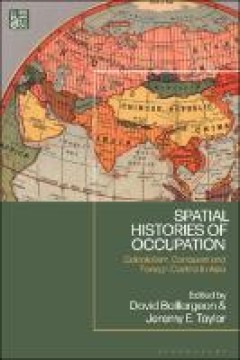
Spatial histories of occupation : colonialism, conquest and foreign control i…
This open access book explores how different spatial geographies emerged, adapted or were transformed in various occupied and colonial settings around Asia, showing how the experiences of those living under occupation shaped and was shaped by new interpretations and typologies of ‘space’. With case studies across South, Southeast and East Asia and through a variety of disciplinary perspecti…
- Edition
- 4
- ISBN/ISSN
- 9781350252622
- Collation
- xii, 264p.
- Series Title
- -
- Call Number
- 950.4 SPA b

CREATING THE CAPE COLONY : the political economy of settler colonisation
This open access book offers a detailed study of the foundation and expansion of the Dutch Cape Colony to ask why certain regions in the global south became European settler societies from the 16th century onwards. Examining the different factors that led to the creation of the Cape Colony, Erik Green reveals it was a gradual process, made up of ad hoc decisions, in which the agency of indigeno…
- Edition
- 4
- ISBN/ISSN
- 9781350258259
- Collation
- viii, 192p.
- Series Title
- -
- Call Number
- 916.8044 CRE g
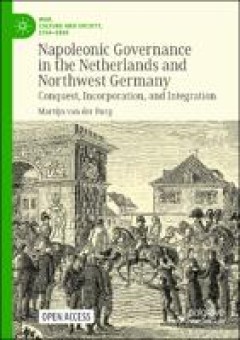
Napoleonic Governance In The Netherlands And Northwest Germany
“Van der Burg presents an innovative transregional study of Napoleonic governance in the often-overlooked northern periphery of the Empire. This book carefully examines the Empire’s administrative structure in the north, focusing on the heterogeneous community of prefects and subprefects as ‘tools of incorporation’, binding the regions to the central state. His rich comparative analysis…
- Edition
- -
- ISBN/ISSN
- 9783030666583
- Collation
- -
- Series Title
- -
- Call Number
- -
 Computer Science, Information & General Works
Computer Science, Information & General Works  Philosophy & Psychology
Philosophy & Psychology  Religion
Religion  Social Sciences
Social Sciences  Language
Language  Pure Science
Pure Science  Applied Sciences
Applied Sciences  Art & Recreation
Art & Recreation  Literature
Literature  History & Geography
History & Geography